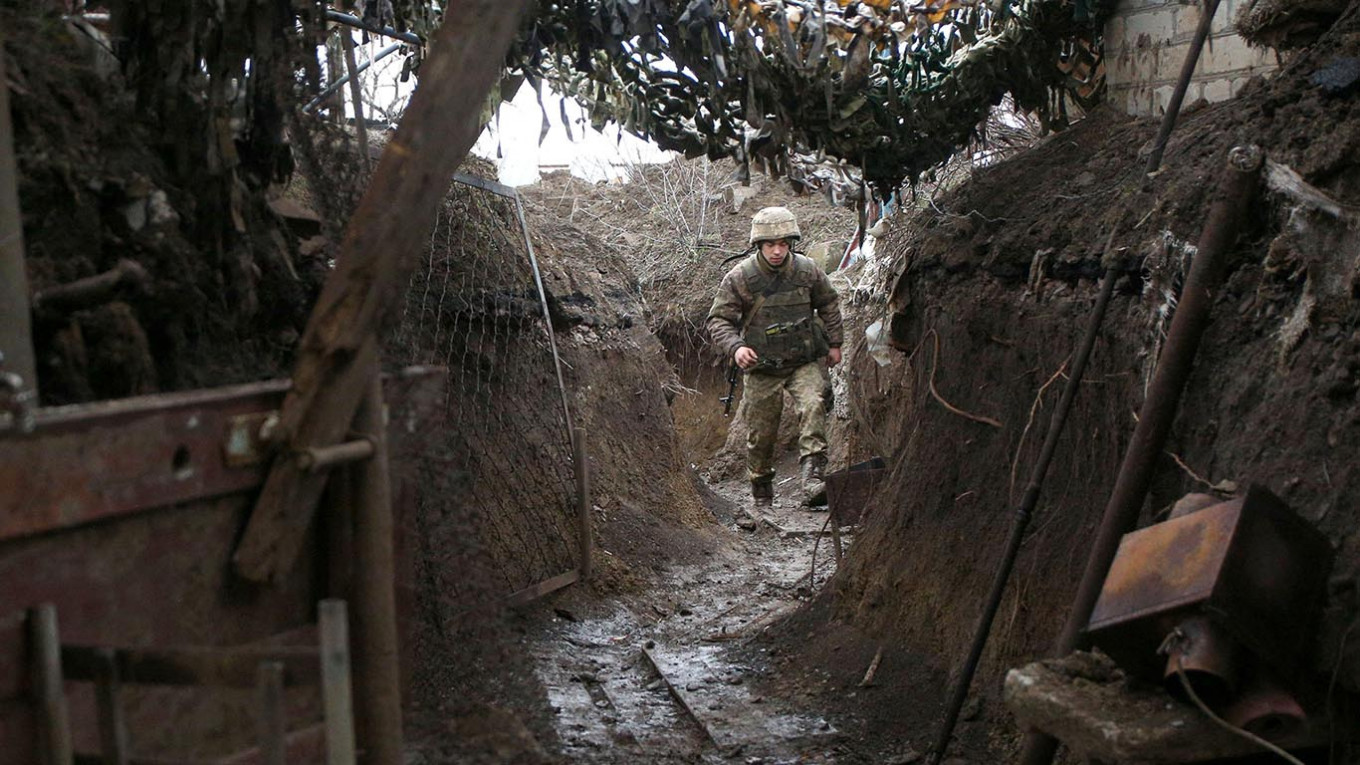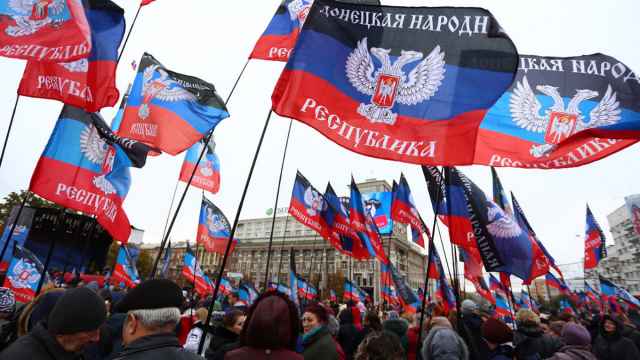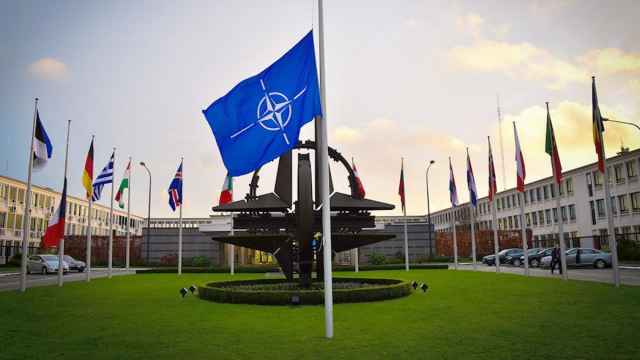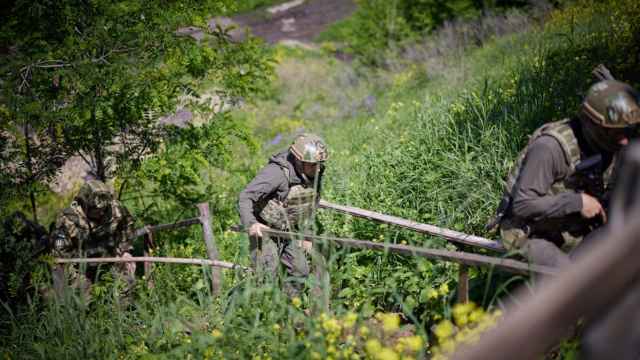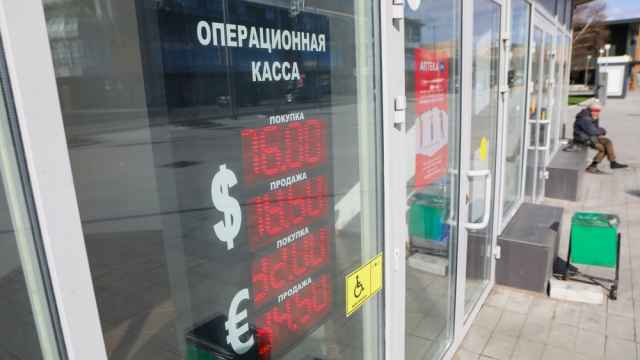Kiev on Thursday accused Russia of flagrantly threatening Ukraine with destruction ahead of President Volodymyr Zelensky's meeting with the leaders of Germany and France.
The concern is mounting that the long-simmering conflict in east Ukraine could spiral back into wider fighting after reports of major Russian troop movements and intensification of clashes with Moscow-backed separatists.
The troop build-up along Ukraine's northern and eastern borders, as well as on the Crimean peninsula annexed by Moscow in 2014, comes amid a spike in violence along the front line between Russian-backed separatists and Ukrainian forces in the east of the country.
Ukraine's leader Zelensky, who has urged NATO to step up his country's push for membership, was expected to travel to Paris on Friday to discuss the rising tensions with French counterpart Emmanuel Macron.
The two leaders will be joined by German Chancellor Angela Merkel by video link, Macron's office said.
Ahead of Zelensky's Paris visit, the foreign ministers of EU members Estonia, Latvia and Lithuania arrived in Kiev on Thursday in a show of support.
Speaking alongside the visiting diplomats, Ukraine's Foreign Minister Dmytro Kuleba told reporters that rhetoric in Moscow had reached a fever pitch with pundits and officials issuing "dehumanizing" statements aimed at intimidating Kiev.
"They are openly threatening Ukraine with war and the destruction of Ukrainian statehood," Kuleba said.
"The red line of Ukraine is the state border. If Russia crosses the red line, then it will have to suffer," Kuleba said in English.
The visit to Ukraine from the Baltic states' foreign ministers was the latest gesture of support from European countries and the United States, which has promised "unwavering" backing.
"Ukraine will never be on its own," Lithuanian Foreign Minister Gabrielius Landsbergis told reporters. "We stand with you, we stand in solidarity."
Macron will receive Zelensky for lunch in Paris, the Elysee said.
Together with Russia, France, Germany and Ukraine form the Normandy format of countries that have sought and failed to resolve the conflict since 2015.
'We are not afraid'
On Wednesday, U.S. President Joe Biden and Merkel agreed to call on Russia to reduce its troops on the border with Ukraine.
Russia dismissed the pressure.
Russian foreign ministry spokeswoman Maria Zakharova said that Western countries including Germany and France should "stop participating in the propaganda campaign surrounding Russian activity on Russian territory that does not threaten anybody."
Kuleba's warning on Russia came after international observers to the conflict said late Wednesday that there had been a dramatic increase in recent violations that was hindering their work.
"The number of violations recorded over the past two weeks has reached its highest level this year and was three times higher than over the same period before," monitors from the Organization for Security and Cooperation in Europe said in a statement.
An uptick in fighting since the start of the year has seen Moscow and Kiev blame each other for the rise in violence between government forces and separatists in eastern Ukraine.
Ukraine says the spate of clashes has cost the lives of nearly 30 Ukrainian servicemen and left at least another 68 wounded since January.
Kiev warned this week that 28,000 separatist fighters and more than 2,000 Russian military instructors and advisers are currently stationed in eastern Ukraine, while nearly 33,000 soldiers are deployed in Crimea.
Russia's defense ministry, however, said those troops were merely responding to "threatening" NATO actions by participating in military drills that would conclude in three weeks.
The uptick in fighting has left in tatters a ceasefire brokered last July that had brought relative calm to the conflict.
"We are not afraid. Ukraine itself is strong enough and has reliable friends to defend its statehood," Kuleba said.
"It is important to make Russia clearly understand that the consequences in the event of military adventures on its part will be very painful."
A Message from The Moscow Times:
Dear readers,
We are facing unprecedented challenges. Russia's Prosecutor General's Office has designated The Moscow Times as an "undesirable" organization, criminalizing our work and putting our staff at risk of prosecution. This follows our earlier unjust labeling as a "foreign agent."
These actions are direct attempts to silence independent journalism in Russia. The authorities claim our work "discredits the decisions of the Russian leadership." We see things differently: we strive to provide accurate, unbiased reporting on Russia.
We, the journalists of The Moscow Times, refuse to be silenced. But to continue our work, we need your help.
Your support, no matter how small, makes a world of difference. If you can, please support us monthly starting from just $2. It's quick to set up, and every contribution makes a significant impact.
By supporting The Moscow Times, you're defending open, independent journalism in the face of repression. Thank you for standing with us.
Remind me later.


